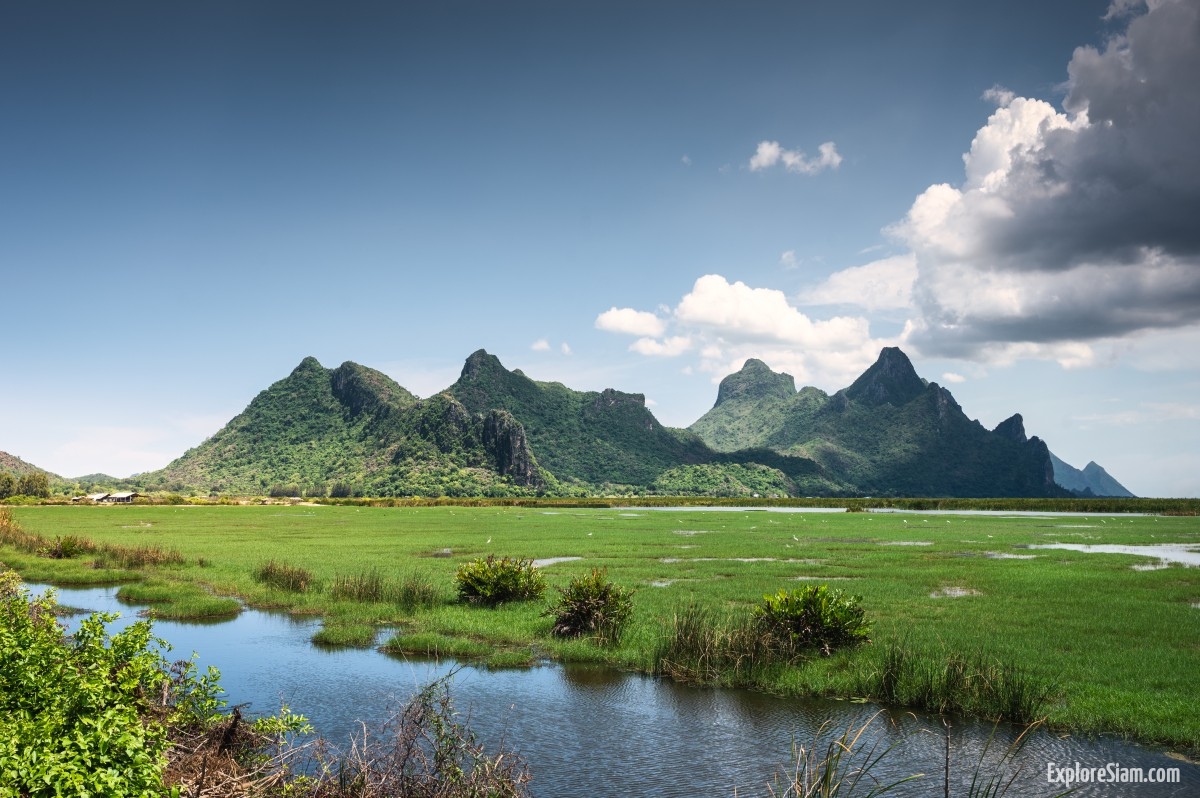Thailand, known for its bustling cities, serene beaches, and vibrant culture, has also become a beacon for ecotourism in Southeast Asia. Beyond the well-trodden tourist paths lies a country rich in biodiversity, indigenous cultures, and pristine landscapes that beckon to the environmentally conscious traveler. Ecotourism in Thailand offers a unique opportunity to explore the natural wonders of the land while contributing to the preservation of its ecosystems and supporting local communities.
Exploring Thailand’s National Parks
Thailand boasts an impressive array of national parks, each offering a unique glimpse into the country’s diverse ecosystems. From dense tropical rainforests to rugged mountain ranges, these protected areas are havens for wildlife and a paradise for nature lovers.
One of the most renowned national parks is Khao Sok, located in the southern region of the country. This ancient rainforest, believed to be one of the oldest in the world, is home to an extraordinary array of flora and fauna, including the elusive clouded leopard and the vibrant Rafflesia flower. Visitors can explore the park through guided jungle treks, canoeing along the emerald-green Cheow Lan Lake, or even staying overnight in floating bungalows that offer a serene escape into nature.
In the north, Doi Inthanon National Park presents a different yet equally captivating experience. As the highest peak in Thailand, Doi Inthanon is known as the “Roof of Thailand”. The park is characterized by its cool climate, lush cloud forests, and stunning waterfalls. Trekking through its trails, visitors may encounter rare bird species, such as the green-tailed sunbird, and experience the vibrant culture of the Karen and Hmong hill tribes who inhabit the area.
Community-Based Tourism: Connecting with Thailand’s Indigenous Cultures
Ecotourism in Thailand goes beyond just appreciating nature; it also involves connecting with the people who call these landscapes home. Community-based tourism (CBT) offers travelers the chance to immerse themselves in the daily lives of Thailand’s indigenous communities while contributing to their economic development and cultural preservation.
In the mountainous regions of northern Thailand, villages like Ban Mae Kampong have embraced CBT as a sustainable way to share their culture with visitors. Here, travelers can stay in traditional wooden homes, participate in tea leaf harvesting, and learn about the local customs and traditions. The income generated from tourism is reinvested into the community, helping to preserve the village’s way of life and the surrounding environment.
Further south, in the province of Surin, the Kui people, known for their ancient tradition of elephant husbandry, offer another form of CBT. Visitors can learn about the deep bond between the Kui and their elephants, participate in the daily care of these majestic animals, and even embark on eco-friendly elephant treks through the surrounding forests. This ethical approach to elephant tourism stands in stark contrast to the exploitative practices seen elsewhere, making it a model for sustainable wildlife tourism.
Marine Conservation: Protecting Thailand’s Coastal Ecosystems
Thailand’s coastline is dotted with some of the world’s most beautiful beaches and coral reefs, making it a top destination for marine ecotourism. However, these fragile ecosystems are under threat from climate change, overfishing, and irresponsible tourism practices. Fortunately, several initiatives across the country are working to protect and restore these vital habitats.
The Similan Islands, a national park in the Andaman Sea, is one such area where marine conservation efforts are in full swing. The islands are renowned for their crystal-clear waters, vibrant coral reefs, and diverse marine life, including manta rays and whale sharks. To protect this underwater paradise, the Thai government has implemented strict regulations on visitor numbers, diving practices, and waste management. These measures ensure that the Similan Islands remain a sustainable destination for future generations of eco-conscious travelers.
On the Gulf of Thailand side, the island of Koh Tao is known for its thriving diving community and ongoing marine conservation projects. Eco-minded travelers can get involved in coral reef restoration programs, participate in beach clean-ups, and learn about sustainable diving practices. By engaging with local dive schools and conservation organizations, visitors can contribute directly to the preservation of the marine environment while enjoying the island’s natural beauty.
Sustainable Lodging: Staying Green in Thailand
As ecotourism gains momentum, Thailand has seen a rise in sustainable accommodations that cater to environmentally conscious travelers. These eco-lodges, often located in remote areas, are designed to minimize their environmental impact while providing a comfortable and immersive experience in nature.
In the forests of Chiang Mai, the Chai Lai Orchid eco-lodge offers a unique blend of luxury and sustainability. Built using locally sourced materials, the lodge operates on solar power, uses natural water filtration systems, and supports local conservation efforts. Guests can wake up to the sounds of the jungle, enjoy meals made from organic ingredients, and participate in activities such as bamboo rafting and guided wildlife tours.
For those seeking a coastal retreat, the island of Koh Phra Thong is home to the Golden Buddha Beach Resort, a pioneer in sustainable tourism. The resort’s bungalows are constructed from renewable materials, and the property is managed with a zero-waste policy. In addition to its eco-friendly practices, the resort actively engages in marine conservation and community development projects, making it a model for sustainable luxury in Thailand.
Responsible Travel: Tips for Ecotourists in Thailand
While Thailand offers countless opportunities for ecotourism, responsible travel practices are essential to ensure that these natural and cultural treasures are preserved for future generations. Eco-conscious travelers should prioritize choosing ethical tour operators, respecting local customs and traditions, minimizing waste, and supporting conservation efforts through donations or volunteer work.
By embracing the principles of ecotourism, travelers can experience the rich biodiversity and cultural heritage of Thailand in a way that benefits both the environment and the people who call this country home. Whether trekking through ancient forests, diving among coral reefs, or learning from indigenous communities, ecotourism in Thailand offers a journey that is as enriching as it is sustainable.





